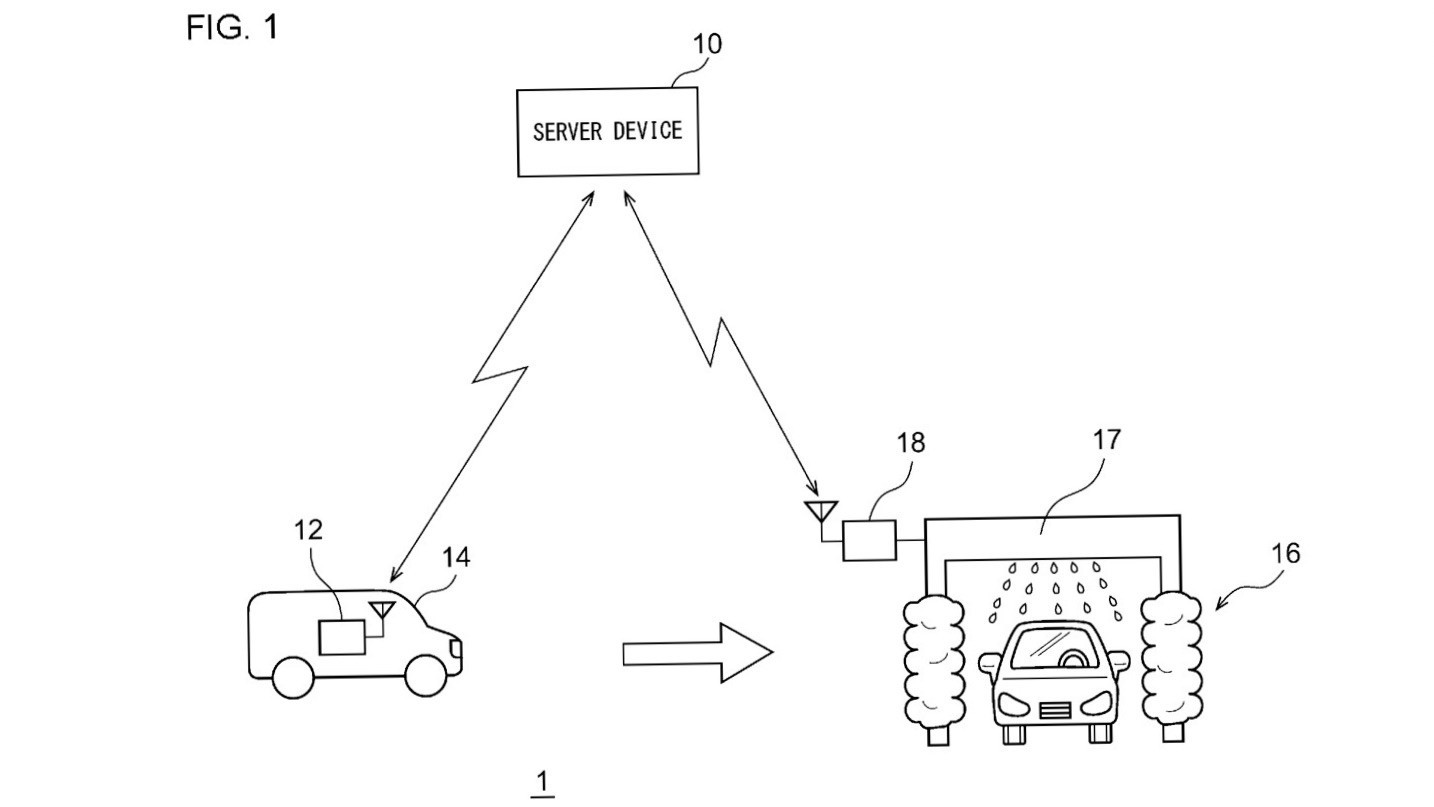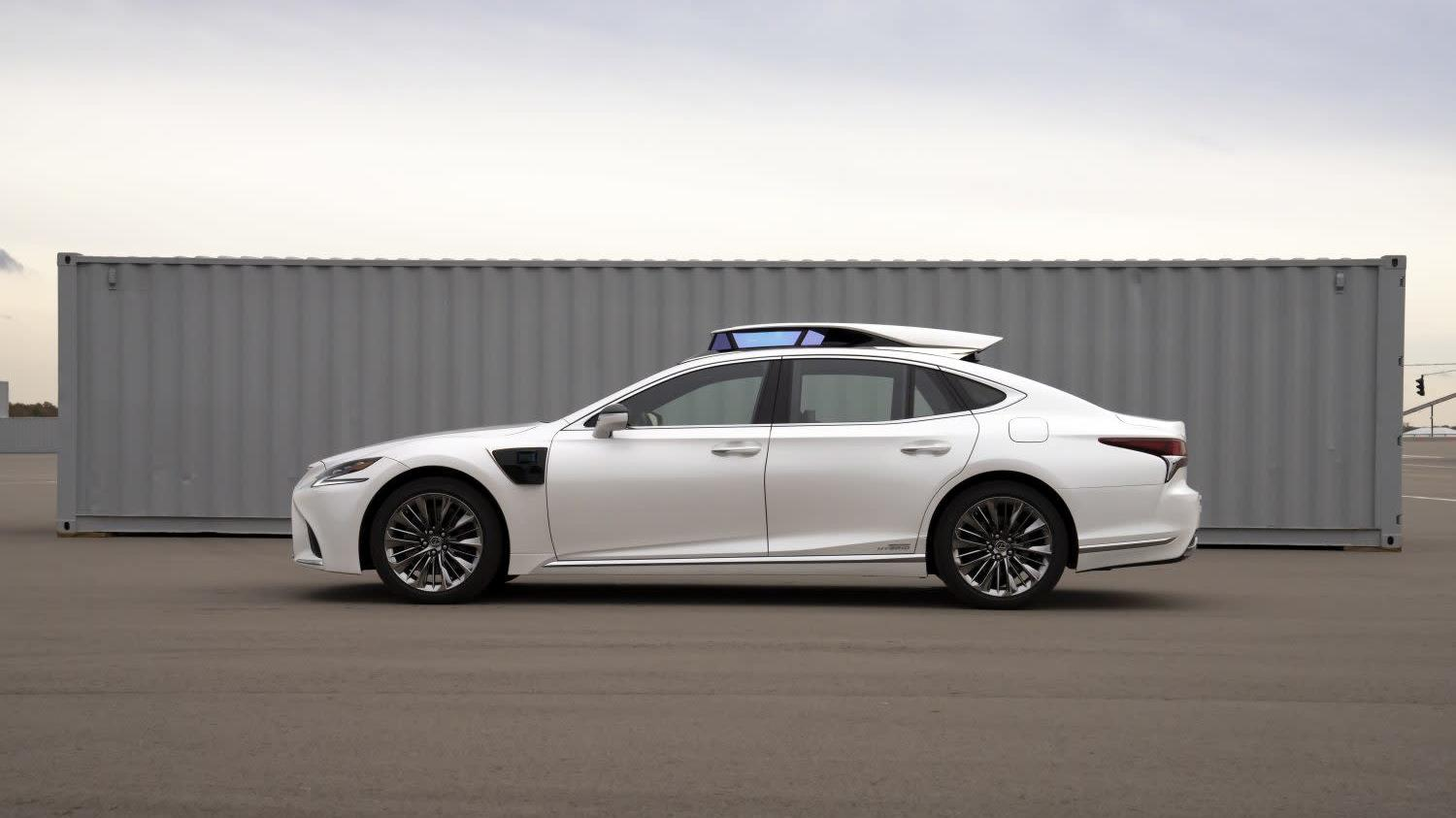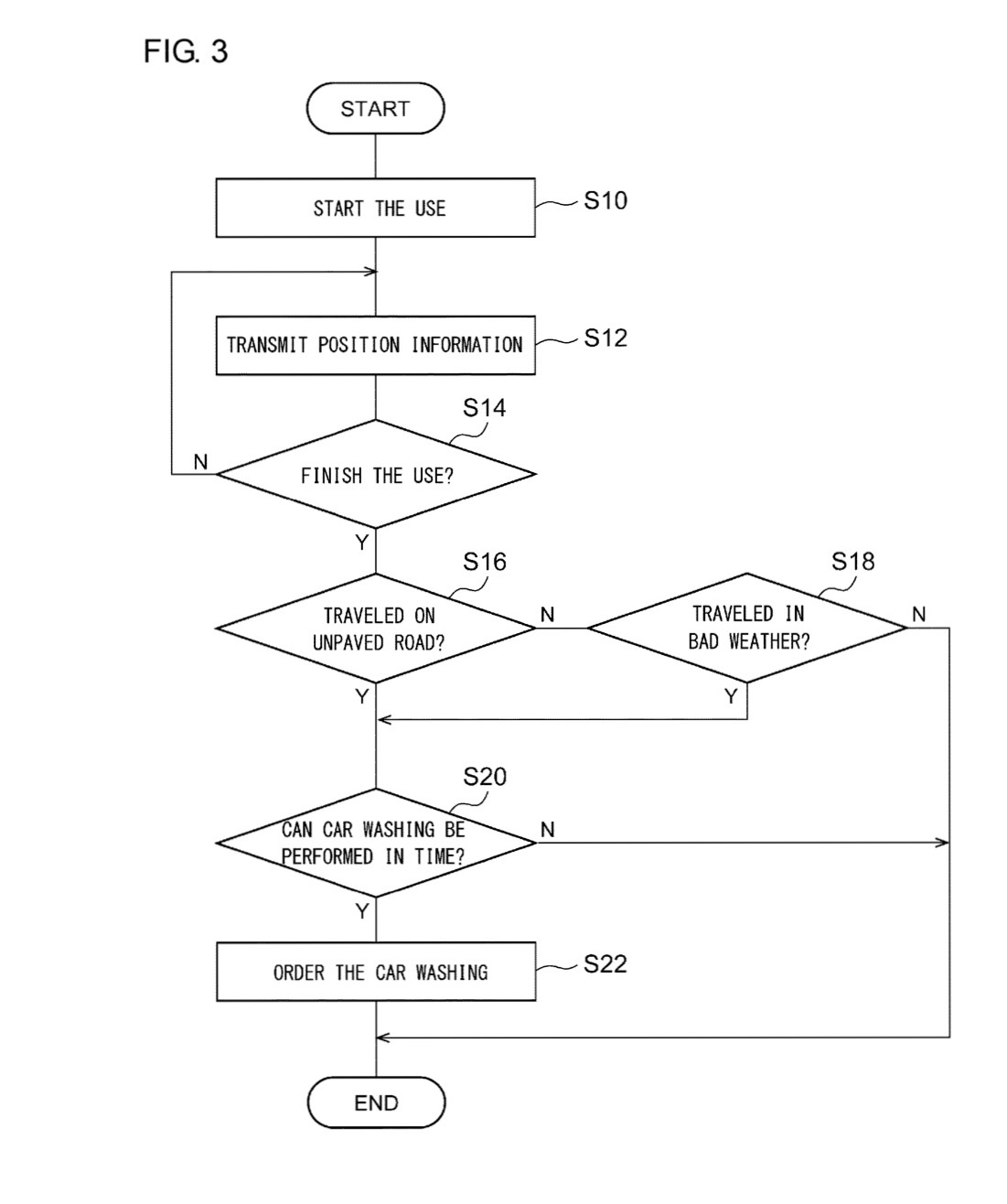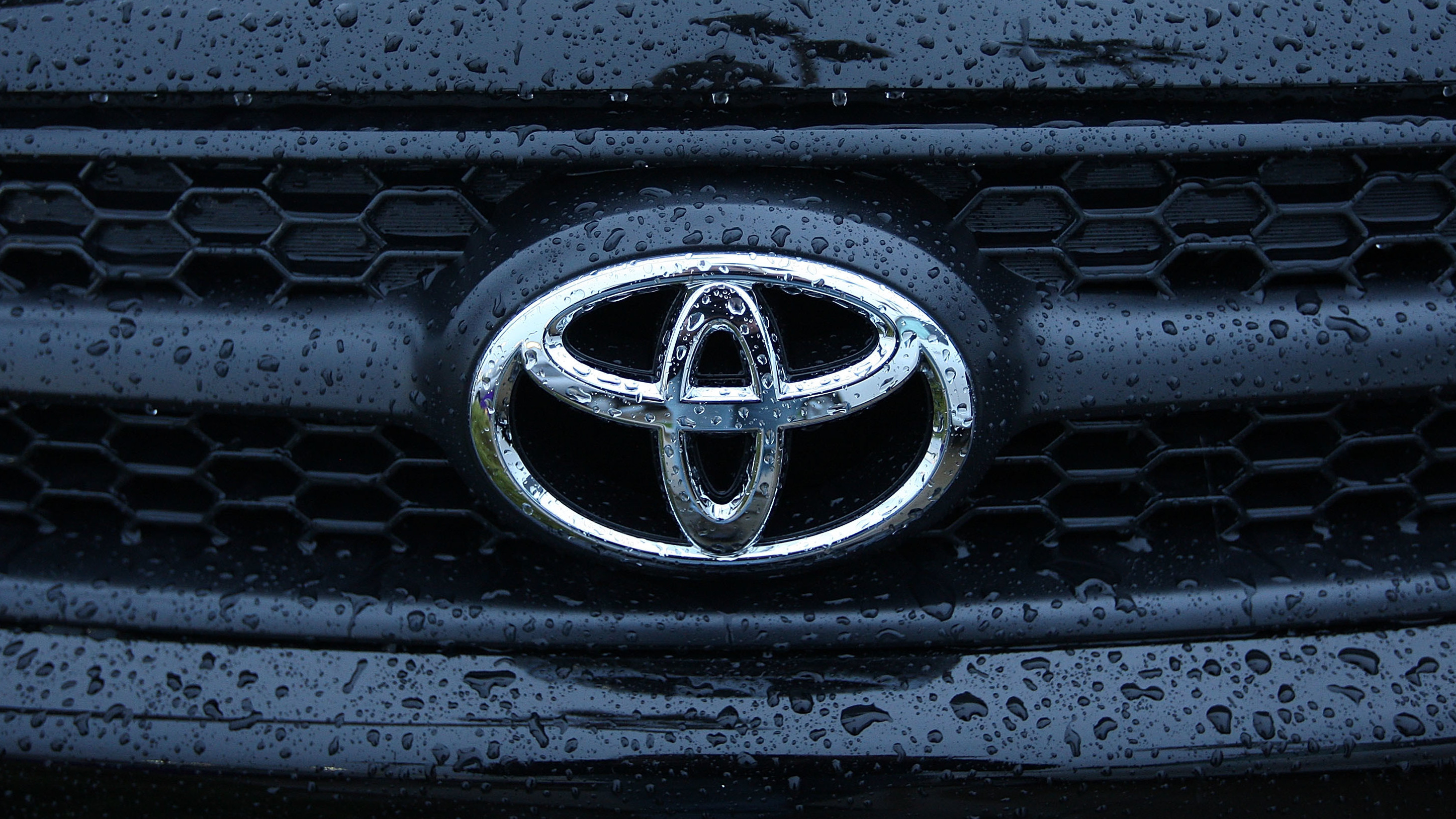Toyota's Robocars Will Wash Themselves Because We Can't Be Trusted
On Christmas Eve, the United States Patent and Trademark Office publicly released an application submitted by Toyota for a "car wash judgement system." It's not a patent application for a system that judges how well you washed your car, nor a system that washes your car while judging you and calling you a bad owner because you let it get to "Wash Me" levels of dirty.
Instead, it's a patent application for a system that coordinates onboard sensors with a remote server to tell an autonomous car when it is dirty enough to need a wash — and instructs the car to drive itself to the spa. Here's a detailed illustration from Toyota:

OK. Maybe not so detailed, but the carmaker raises — and quite possibly, answers — a question that we have mostly overlooked. If we are not driving our cars, then we aren't washing them either. When riders in the driverless future hail a car or summon their Amazon robotaxi, they will expect that this machine rolls up to the curb gleaming like the future it represents. But who is going to wash these?

Well, Toyota is suggesting that the autonomous vehicles will wash themselves by way of this system, which will relay information between the car and an offsite server. The system will monitor weather conditions, time elapsed and distance traveled after the last car wash. Also, time before upcoming car sharing use. And it will use GPS to monitor whether the car has been on unpaved roads.

Overall, the system will judge when the car has met conditions "that could cause a vehicle's outer surface to get dirty," and will initiate the self-driving protocol to the wash location set by Toyota.
The parameters that the system monitors are a little mundane — OK, some are clever — but the sum of its parts do add up to an interesting whole. And Toyota suggests this system is not just for autonomous cars, but could be used on piloted cars, too, where the wash protocol is replaced by a notification when the car judges it's dirty.
The timing here is important. Not just because the robocars are coming, but also because Toyota announced that it is entering the mobility segment with its company Kinto Europe. At first I was confused as to why Toyota wanted to make an e-scooter, but then I found this explainer video:
Alright. I'm still a little confused, but setting Toyota's delirium aside, the video seems to provide the basic premise for Kinto. It will provide mobility services such as leasing, short-term subscriptions, corporate car pooling and car sharing. The carmaker plans to leverage its dealer network to deploy these services. But, notably, Toyota claims Kinto will "prepare to integrate future advances in automated driving."
It's possible that Kinto fleets are Toyota's answer to AVs from other carmakers and ride-hailing services. Maybe not in the immediate future, but as the segment matures. Driverless cars have been a long time coming and have a long way to go.
Right now, no one really knows how to solve the problems they pose. At the very least, Toyota seems to be suggesting a solution to one of these, the problem of dirty robocars.
